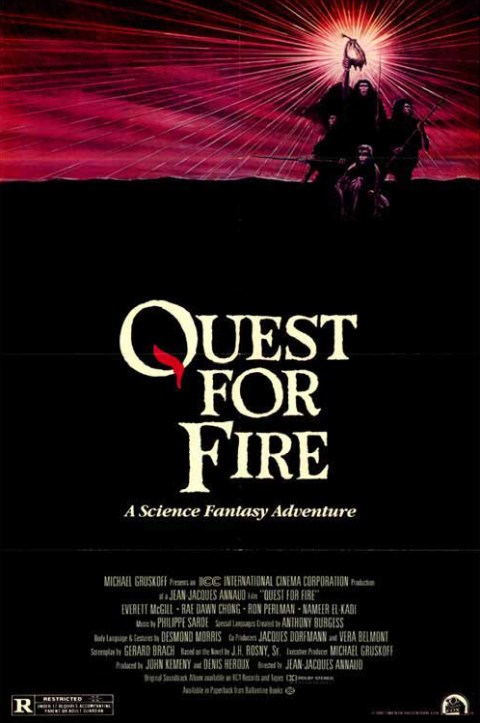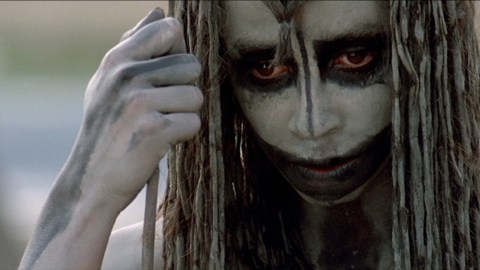17. 4. – 19. 4. 2026
Quest for Fire

 Original title: La Guerre du feu
Original title: La Guerre du feuDirector: Jean-Jacques Annaud
Production: 1981, Canada / France / USA
Length: 100 min.
Screened:
KRRR! 2016: 70mm 2.2:1, Colours partly faded, MG Dolby, Spoken language: Original, Subtitles: NoneAnnotation for KRRR! 2016
The 1981 film The Battle for Fire by French director Jean-Jacques Annaud goes against many of the expectations we have when approaching a feature film. Yes, the film tells a story, it somehow develops and actors act in it. Nevertheless, its concept seems almost experimental and goes against conventionalized creative choices to such an extent that it is difficult to find its artistic equivalent in the field of feature films.
As for the plot, the most apt description of it is the title of the film itself. A relatively stoic clan of primitive people takes care of an exceptionally valuable flame when it is attacked by feral creatures who seem to be somewhere between apes and humans. And from that moment on, the fire is lost, found and lost... A similarly original theme, additionally strengthened by the authentic-looking emotional flatness of the characters with minimal expressive abilities, does not require a more complex plot structure, and perhaps would even be detrimental to it.
Annaud's film has an even stronger effect on the viewer's senses, as most of the hundred-minute footage is spent fighting, screaming, running or having sex, all in a truly animalistic way. Yes, it is undoubtedly a film telling a fictional story. However, it can be said that it is also a film on the verge of documentary reconstruction, because it is driven by the effort to impressively convey ancient times. Annaud's journey into prehistory in The Battle for Fire is similarly irresistibly unadorned, stinking and rotting, as was his later journey into the Middle Ages in The Name of the Rose. However, it would be inaccurate to understand The Battle for Fire as a sequence of savage and brutal scenes filmed from a close distance. It is also a work that works impressionistically with natural footage, and the vast landscape, captured stylistically and masterfully, is the fundamental reason why the film will undoubtedly stand out on 70mm film.